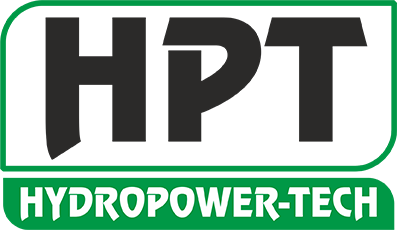That’s where hydraulic punching machines come in. Known for their strength, accuracy, and efficiency, these machines have become a staple in fabrication shops and manufacturing plants around the world. In this guide, we’ll break down how hydraulic punching machines work, what makes them so effective, and why they’re worth considering for your production line.
What Is a Hydraulic Punching Machine?
A hydraulic punching machine is a piece of industrial equipment that uses hydraulic pressure to punch holes or shapes into metal sheets or plates. It replaces manual labor and mechanical alternatives by offering high force output, consistency, and precision.
Hydraulic power enables the machine to process a variety of metals, including steel, aluminum, and copper. It is commonly used in sectors such as construction, automotive, aerospace, and electrical equipment manufacturing.
How Does a Hydraulic Punching Machine Work?
These machines operate through a hydraulic system that transfers pressure from a fluid to perform the punching action. Here’s how it works:
- The metal sheet is positioned accurately on the work table.
- Hydraulic power activates the punch.
- The punch drives the metal through a die to create a precise hole or slot.
- The machine resets and is ready for the next punch.
The entire process is quick, clean, and energy-efficient. This is why many metal punching machines used today rely on hydraulic systems over mechanical alternatives.
Key Components of a Hydraulic Punching Machine
- Hydraulic Cylinder – Generates the punching force.
- Punch and Die Assembly – Shapes the hole with precision.
- Worktable – Holds the metal sheet in place.
- Control Panel – Allows the operator to adjust settings.
- Frame – Supports the entire structure and withstands pressure.
These components work together to ensure that the hydraulic punching machine delivers uniform, accurate results.
Benefits of Hydraulic Punching Machines
Hydraulic punching machines offer multiple advantages over traditional methods:
- Accuracy and Consistency – Precision holes every time.
- High-Speed Operations – Speeds up production cycles.
- Lower Labor Costs – Reduces manual workload.
- Minimal Maintenance – Fewer moving parts mean less wear and tear.
- Versatile Applications – Works on various metal types and thicknesses.
Whether you’re a hydraulic punching machine manufacturer or an end-user, these benefits can directly impact your productivity and profits.
Applications in the Industry
Hydraulic punching machines are used across various industries, including:
- Electrical panel manufacturing
- Metal enclosures and cabinets
- Automobile frame and chassis components
- Structural metal fabrication
These are essential tools in any industrial punching machine lineup. If you’re in the business of punching machines for metal fabrication, adopting hydraulic models is a smart investment.
Maintenance Tips for Hydraulic Punching Machines
Regular maintenance ensures your machine operates efficiently for years. Here are key tips:
- Check Hydraulic Fluid Levels – Low fluid can reduce pressure.
- Inspect Punch and Die Wear – Replace when edges are dull.
- Clean Work Area Daily – Prevents buildup of metal dust.
- Test Controls Frequently – Ensure emergency stops and settings are responsive.
Following these practices can reduce downtime and improve machine longevity. A good hydraulic punching machine supplier will also provide maintenance support.
Why Choose a Reliable Hydraulic Punching Machine Manufacturer?
Choosing the right hydraulic punching machine manufacturer can make all the difference. Here’s why:
- Custom Solutions – Reputable manufacturers can tailor machines to your needs.
- After-Sales Service – Includes training, spare parts, and maintenance.
- Quality Assurance – Reliable manufacturers adhere to industrial quality standards.
When selecting a partner, consider a company that not only sells but also provides insights into optimizing the use of metal punching machines in your operation.
Comparing Hydraulic vs. Mechanical Punching Machines
Why do most industries prefer hydraulic punching machines?
- Less Noise – Quieter operation than mechanical alternatives.
- Greater Control – Adjustable pressure for different materials.
- Better Safety – Equipped with modern safety features.
- Energy Efficiency – Uses power only during operation.
These advantages make hydraulic machines a preferred option in high-demand manufacturing environments.
Emerging Trends and Innovations
Modern hydraulic punching machines are becoming smarter and more efficient with time. Some of the latest trends include:
- CNC Integration – Enhances precision and automation.
- Eco-Friendly Designs – Machines are now more energy-efficient.
- Touchscreen Controls – Easier operation and diagnostics.
- IoT Connectivity – Enables remote monitoring and predictive maintenance.
These advancements not only improve productivity but also extend the machine’s lifespan, making them more appealing to industrial punching machine users worldwide.
Conclusion
A hydraulic punching machine is a must-have for any business involved in sheet metal work or structural metal production. It’s precise, reliable, and scalable — ideal for a range of applications.
Whether you’re a growing fabricator or a large-scale manufacturer, understanding the machine’s basics, applications, and benefits will help you make the right purchasing decisions. Partner with a trusted hydraulic punching machine manufacturer or industrial punching machine supplier to ensure quality and long-term support.
Ready to upgrade your fabrication process? Contact an experienced hydraulic punching machine supplier today and discover the right model for your needs.

